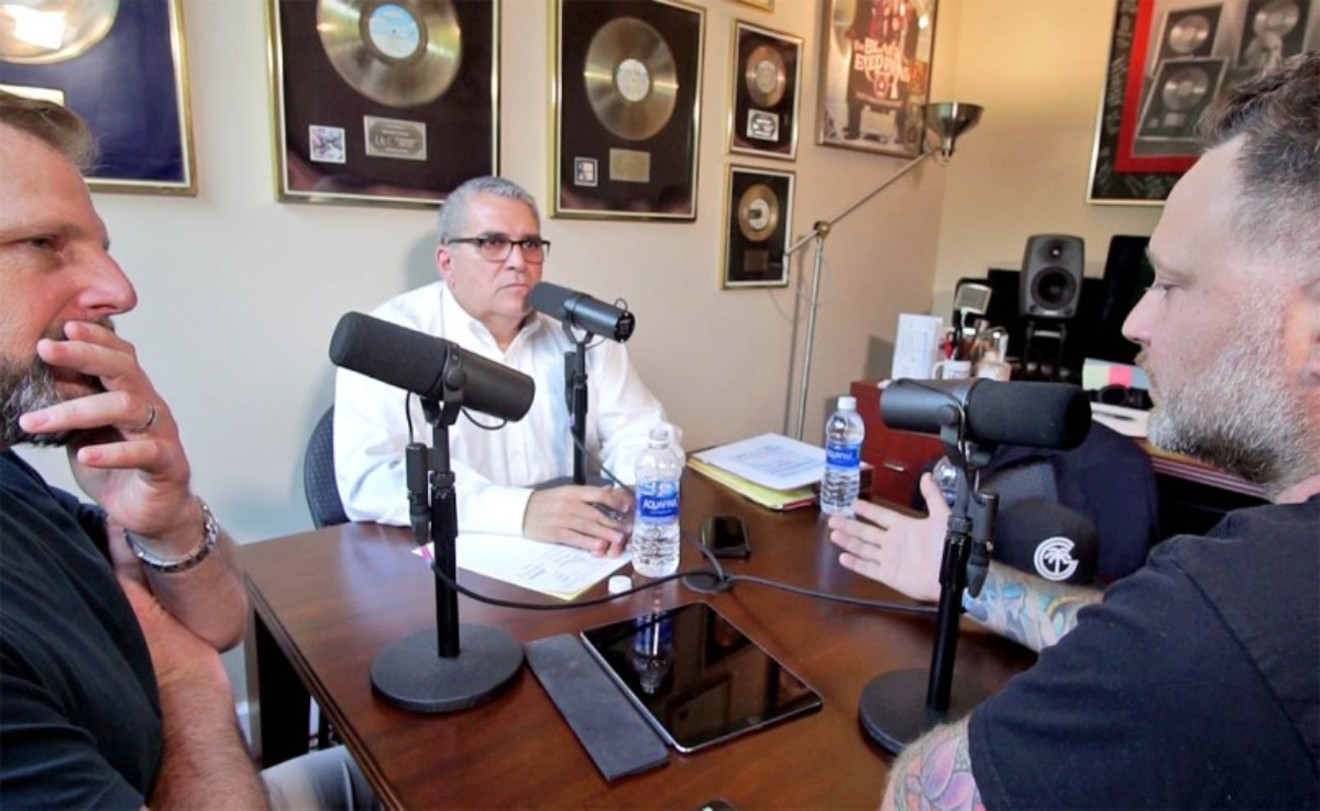Inspiration struck Joe Stone in the most Miami way possible, with his mind wandering and hands behind the wheel of a Porsche Macan as he sped down Interstate 95.
"I was driving on I-95, and the entire concept just downloaded into my brain, from the name of the show to the people I wanted to get involved to help me produce it, to the format," says Stone, a music producer and writer.
For years, Stone says he and his friends had been talking about the criminal justice system and how messed up it could be. And working with young hip-hop artists, he was troubled by the stories they would tell him about policing in their minority neighborhoods. After his revelation on I-95, Stone launched Felony Miami, a new podcast dedicated to deep-dives with elected officials, activists, and lawyers involved in the criminal justice space.
"I love having conversations with people, and I thought, let me take this conversation out of my group of friends, my echo chamber, and start to have it with a bigger group of people," he says.
Each episode of Felony Miami centers around a different topic in the criminal justice world, from bail bonds to mass incarceration to public corruption. Now in its second season, the show's eclectic lineup of guests has included Miami-Dade chief public defender Carlos Martinez, activist and reality star Angela "Myammee" Pitts, and Marjory Stoneman Douglas High School teacher Chris Mattox.
Going into the show, Stone's goal was to make a podcast that was entertaining but informational. Although he tries to keep things apolitical, he says he also wants to hold local leaders accountable for their decisions.
"I try to be cool on the show, but at the same time I try to hold their feet to the fire," he says.
That's true of one of Stone's dream guests, Miami-Dade State Attorney Katherine Fernandez Rundle, who has faced criticism on earlier episodes. On a recent episode about coerced confessions, defense attorney Jeffrey Weiner said that the majority of prosecutors in Rundle's office "look the other way" even when they know a certain police officer has a history of perjury.
"[Prosecutors] will support the police officer's version even when they know it's not true," Weiner said. "There is virtually no discipline from Kathy Rundle's office against police officers in the overwhelming majority of cases when they lie."
Nevertheless, Stone says he'd like to have Rundle on a future episode.
"I'd like to hear where she's coming from and what they're doing," he says.
Unlike other Florida crime podcasts, Felony Miami isn't of the true crime genre. Rather than focusing on particular cases, Stone wanted to look at systemic issues and big-picture truths.
"Felony Miami is not us recanting old crimes that happened and talking about gory, bloody stuff," he says. "It's really about what's going on in our community today."
Despite having just launched in March, Stone says the show already has thousands of listeners, including people from Sweden, the Netherlands, and the United Kingdom. And although it's focused on what's happening locally, he hopes anyone interested in the criminal justice system will find it relevant.
"Even though there are subtle differences in the way the criminal justice system works from state to state or even county to county, essentially it's the same in the way that we've decided to start imprisoning our people at the highest rate in the world," Stone says. "The idea is to get people to help me shine a light on this, turn the volume up on this, and make it something more people talk about."
[
{
"name": "Air - MediumRectangle - Inline Content - Mobile Display Size",
"component": "19274298",
"insertPoint": "2",
"requiredCountToDisplay": "2"
},{
"name": "Editor Picks",
"component": "17482312",
"insertPoint": "4",
"requiredCountToDisplay": "1"
},{
"name": "Inline Links",
"component": "18711090",
"insertPoint": "8th",
"startingPoint": 8,
"requiredCountToDisplay": "7",
"maxInsertions": 25
},{
"name": "Air - MediumRectangle - Combo - Inline Content",
"component": "17482310",
"insertPoint": "8th",
"startingPoint": 8,
"requiredCountToDisplay": "7",
"maxInsertions": 25
},{
"name": "Inline Links",
"component": "18711090",
"insertPoint": "8th",
"startingPoint": 12,
"requiredCountToDisplay": "11",
"maxInsertions": 25
},{
"name": "Air - Leaderboard Tower - Combo - Inline Content",
"component": "17482313",
"insertPoint": "8th",
"startingPoint": 12,
"requiredCountToDisplay": "11",
"maxInsertions": 25
}
]












